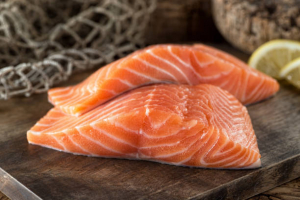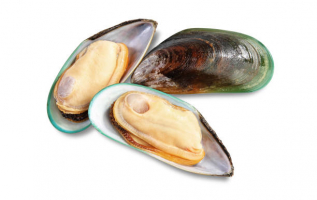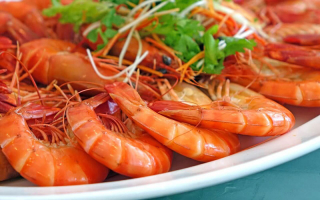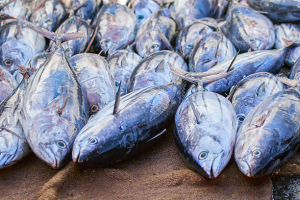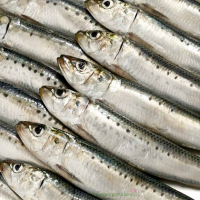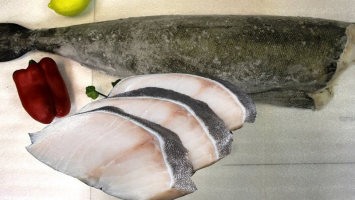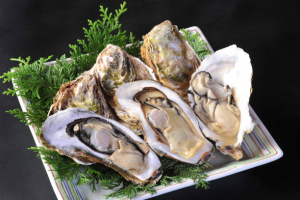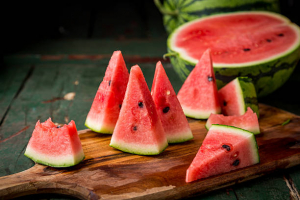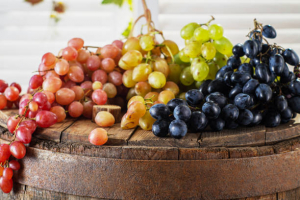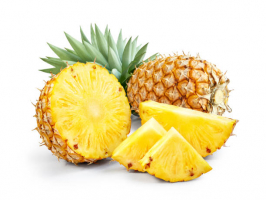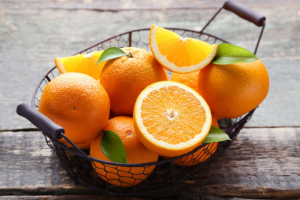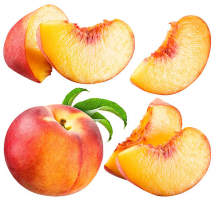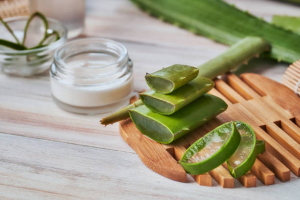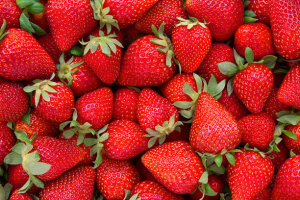Top 10 Health Benefits of Eating Pears
Pears are delicious, bell-shaped fruits that have been popular since antiquity. They may be eaten both crunchy and soft. There are many reasons why you should ... read more...include pears in your meal plans; they contain many nutrients. In addition, pears have different uses and multiple benefits. Here are the best health advantages of pears. Read on for more information.
-
There are several types of pears. The most common pears are Bartlett, Bosc, and D'Anjou, but there are over 100 varieties farmed globally. A medium-sized pear (178 grams) provides the following nutrients:
- Calories: 101
- Protein: 1 gram
- Carbs: 27 grams
- Fiber: 6 grams
- Vitamin C: 12% of the daily value (DV)
- Vitamin K: 6% of DV
- Potassium: 4% of the DV
- Copper: 16% of DV
This serving contains trace quantities of folate, provitamin A, and niacin. Folate and niacin are essential for cellular function and energy generation, respectively, whilst provitamin A promotes skin health and wound healing. Pears are also high in key minerals such as copper and potassium. Copper helps with immunity, cholesterol metabolism, and neuron function, whereas potassium helps with muscle contractions and heart function. Furthermore, these fruits are high in polyphenol antioxidants, which protect against oxidative damage. Consume the entire pear, as the peel contains up to six times more polyphenols than the meat.
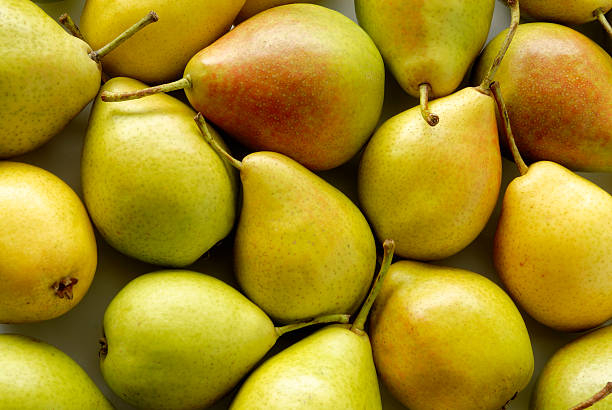
Highly nutritious 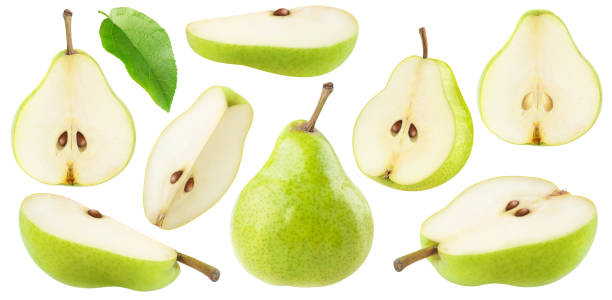
Highly nutritious -
Pears are high in soluble and insoluble fiber, both of which are necessary for digestive health. By softening and thickening up feces, these fibers aid with bowel regularity. One medium-sized pear (178 grams) has 6 grams of fiber, which accounts for 22% of your daily fiber requirements. Soluble fibre also nourishes the good microorganisms in your stomach. These fibers work by bulking up and softening your stool, feeding the healthy bacteria in your gut. This prebiotics promotes healthy growth for your body over the ages and boosts your immunity.
As such, they are classified as prebiotics, which is linked to healthy aging and enhanced immunity. Notably, fiber may aid with constipation relief. In 4-week research, 80 people with this disease were given 24 grams of pectin (fruit fiber) each day. They received constipation alleviation as well as a rise in good gut bacteria numbers. Because pear skin includes a lot of fiber, it's recommended to consume this fruit unpeeled.
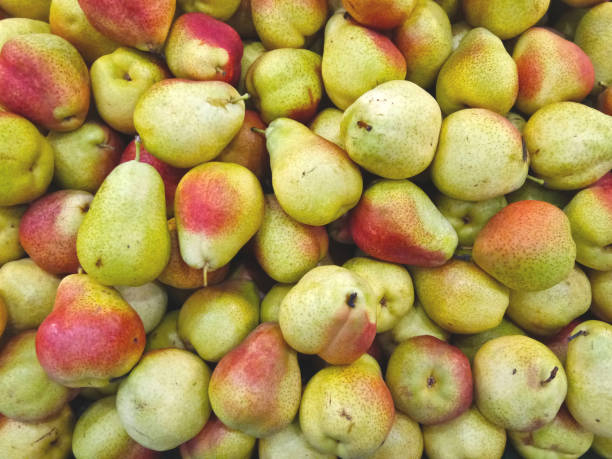
May promote gut health 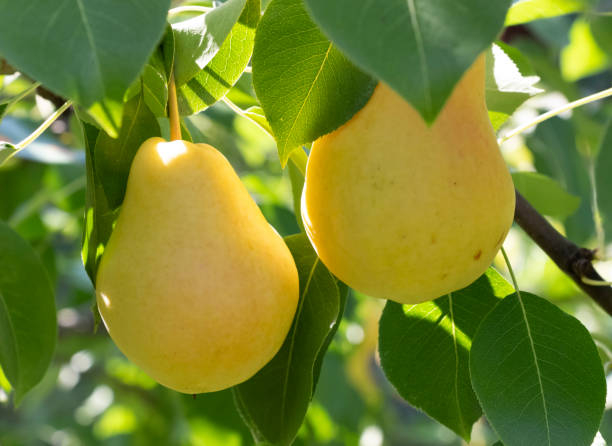
May promote gut health -
Pears contain several useful plant components that give these fruits their various colors. Anthocyanins, for example, give certain pears a ruby-red color. These chemicals may benefit heart health and blood vessel strength. Though further study on pear anthocyanins is needed, multiple population studies show that eating anthocyanin-rich foods like berries is linked to a lower risk of heart disease. Pears with green skin contains lutein and zeaxanthin, two chemicals essential for maintaining bright vision, especially as you age.
The plant chemicals that give pears their green color are responsible for their color. Red pears include anthocyanins, which are also helpful to your health. These chemicals have been shown to improve health and strengthen blood vessels. Green pears are the most frequent in India, and they are high in lutein and zeaxanthin, both of which are needed for eye health. These substances accumulate in your retina to protect you from blindness and other eye problems. They also help to halt the degradation of your vision.
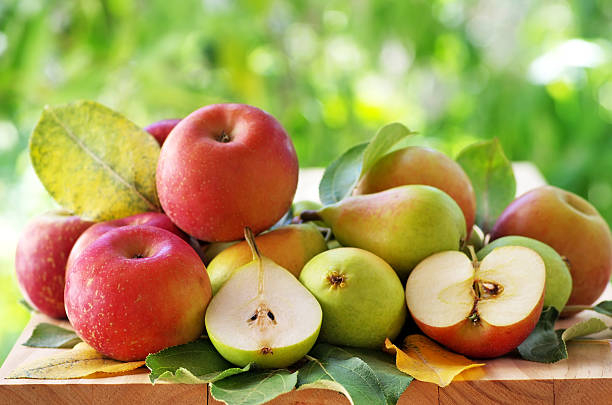
Contain beneficial plant compounds 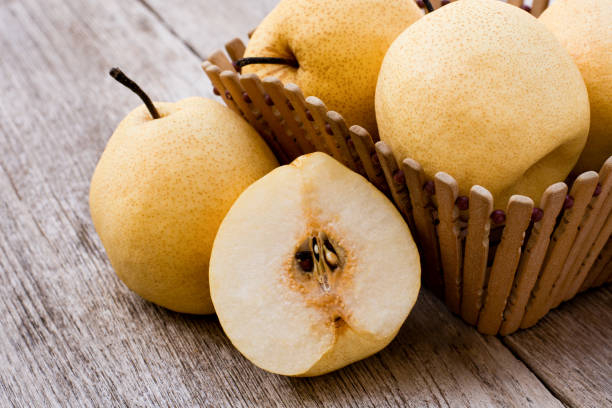
Contain beneficial plant compounds -
Pears can help avoid long-term or chronic inflammation, which can be harmful to your health and lead to heart disease or type 2 diabetes. Pears include flavonoid antioxidants, which help combat inflammation and enhance immunity by preventing illness. Because of their anti-inflammatory characteristics, flavonoid consumption has been shown to protect against heart disease and diabetes. Minerals and vitamins such as potassium, copper, Vitamin C, and Vitamin K, in addition to antioxidants, aid in the battle against inflammation.
Although inflammation is a typical immune reaction, it can be harmful to your health over time. It has been related to a number of diseases, including heart disease and type 2 diabetes. Pears are high in flavonoid antioxidants, which reduce inflammation and may lower your risk of illness. Pears also includes a variety of vitamins and minerals, including copper and vitamins C and K, which help to reduce inflammation.
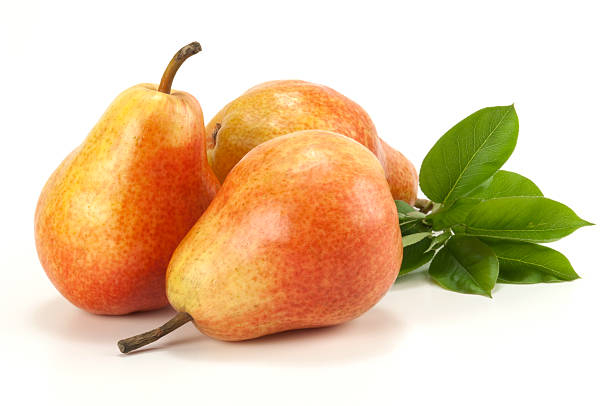
Have anti-inflammatory properties 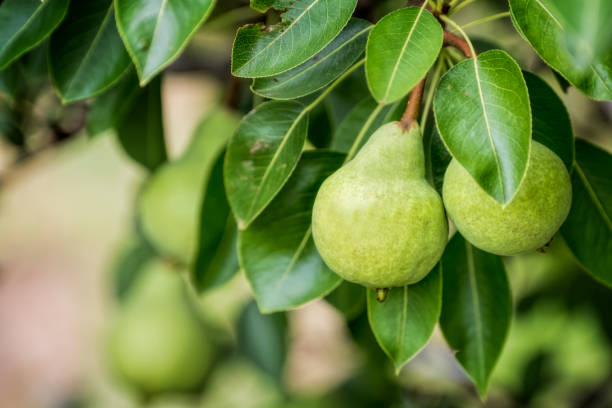
Have anti-inflammatory properties -
Pears include a number of chemicals that may have anticancer effects. Their anthocyanin and cinnamic acid contents, for example, have been demonstrated to prevent cancer. A few studies suggest that eating fruits, particularly pears, may help prevent some malignancies, such as lung, stomach, and bladder cancer. Pears' anthocyanin and cinnamic acid concentration can help fight cancer. Fruit-rich diets, particularly pears, protect against stomach, lung, and bladder cancer. Pears are also high in flavonoid antioxidants, which can help protect against breast and ovarian cancer, making them an essential part of any diet.
According to certain population studies, flavonoid-rich fruits like pears may help protect against breast and ovarian malignancies, making this fruit an especially wise choice for women. While eating more fruits may lower your risk of cancer, further study is needed. Pears should not be used as a substitute for cancer therapy.
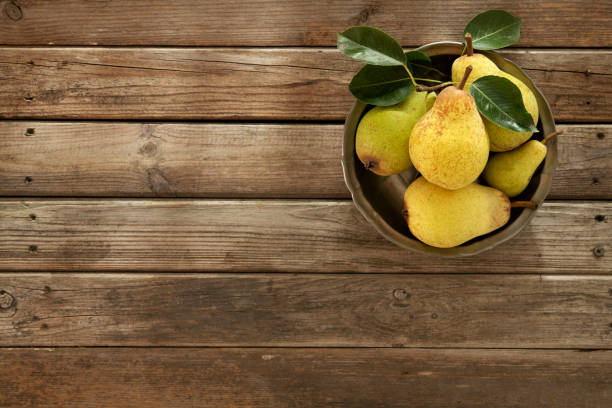
May offer anticancer effects 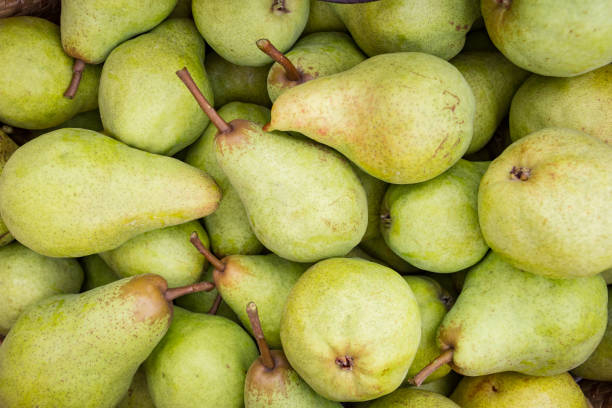
May offer anticancer effects -
Pears, especially red types, may help lower diabetes risk. According to one major research of over 200,000 adults, consuming 5 or more weekly servings of anthocyanin-rich fruits like red pears was related to a 23% decreased risk of type 2 diabetes. In addition, mouse research discovered that plant chemicals in pear peel, particularly anthocyanins, have anti-diabetes and anti-inflammatory properties.
Pears, which are high in anthocyanin and fibre, aid to prevent diabetes and benefit those who already have it. Because of the anthocyanin concentration, eating five or more pears each week can significantly reduce your risk of developing diabetes. Furthermore, the fibre content delays digestion, allowing your body to take longer to break down meals and absorb carbohydrates. This fibre content helps to control blood sugar levels, and the anti-inflammatory effects of pear peels also help.
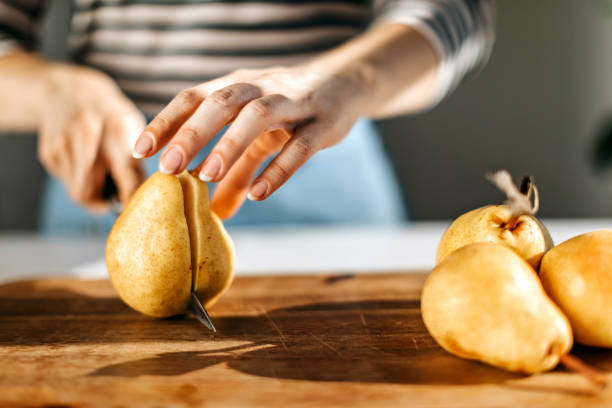
Linked to a lower risk of diabetes 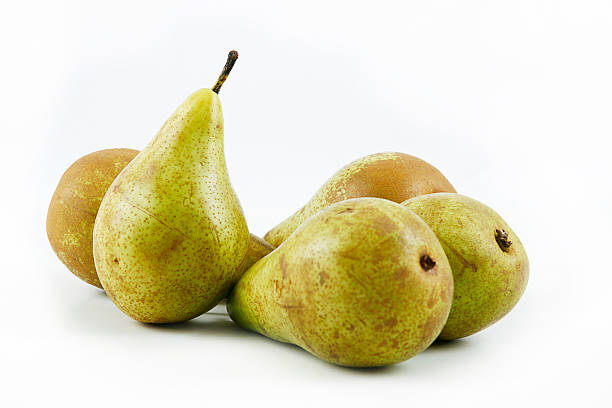
Linked to a lower risk of diabetes -
Pears may reduce your chance of developing heart disease. Their procyanidin antioxidants may reduce cardiac tissue stiffness, cut LDL (bad) cholesterol, and raise HDL (good) cholesterol. The peel includes quercetin, an essential antioxidant that is known to help heart health by lowering inflammation and risk factors for heart disease like as high blood pressure and cholesterol levels. In one research of 40 individuals with metabolic syndrome, a group of symptoms that raises your risk of heart disease, eating two medium pears each day for 12 weeks reduced heart disease risk factors like high blood pressure and waist circumference.
A big 17-year study of nearly 30,000 women found that eating 80 grams of fruit per day reduced the risk of heart disease by 6–7%. 1 medium pear weighs around 178 grams. Furthermore, frequent consumption of pears and other white-fleshed fruits is suggested to reduce the incidence of stroke. A 10-year study of almost 20,000 adults found that eating 25 grams of white-fleshed fruit daily reduced stroke risk by 9%.
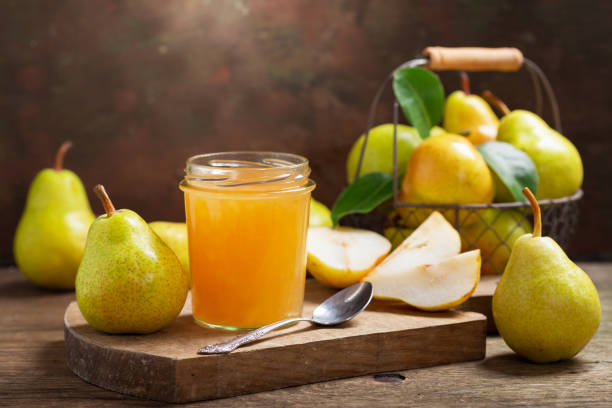
May boost heart health 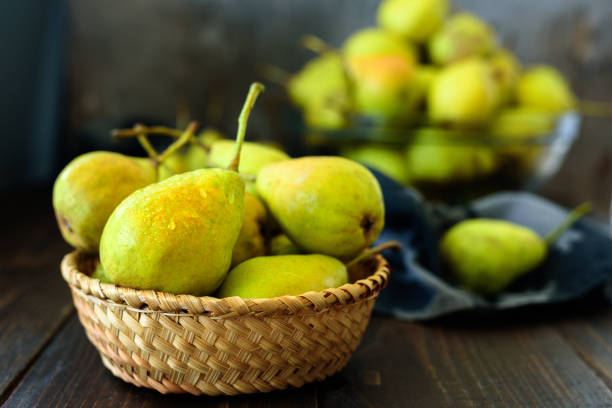
May boost heart health -
Pears are one of the lowest-calorie fruits, with a medium pear containing slightly more than 100 calories, or around 5 to 10% of most healthy calorie-restricted diets. They are also a low-calorie density meal with high water content, making them a good alternative for weight loss. A clinical investigation examined the data of 49 women aged 30 to 50 who were instructed to add three of either apple, pears, or oat cookies to their regular diet for ten weeks.
The ladies who ate apples or pears lost weight, but the ones who ate oat cookies gained weight. All three foods contain the same amount of fiber and calories, however, their energy density varies. Because of their high water and fiber content, eating pears on a regular basis may help you feel full. As a result, you may be able to reduce weight.
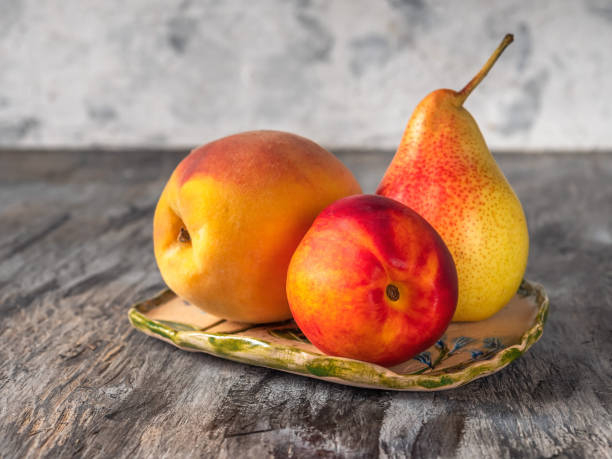
May help you lose weight 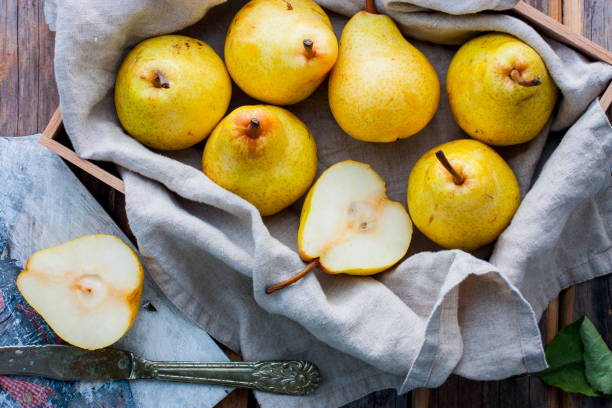
May help you lose weight -
As previously said, pears are abundant in water, which naturally moisturizes the skin from the inside out. They are also high in natural humectants, which help the skin keep its natural moisture by regulating its usual water level. Pears are therefore a wonderful cure for keeping dry, flaky skin hydrated throughout the day. To make your skin soft, supple, and smooth, drink one fruit juice daily or apply a moisturizing lotion containing pears extract.
If your skin has a coating of dead cells, pears may be a great natural scrub. The fruit is high in natural enzymes, which help exfoliate the skin thoroughly by removing dead cells from its surface layers. Simply add some pear extract to your normal face pack and gently cleanse your face with the combination. Pear extract may also be used as a light natural peel to exfoliate skin and speed up cell turnover. Consider incorporating pears in your cosmetic routine if your skin's sebaceous glands become hyperactive. The fruit can successfully cure oily skin by regulating sebum output. To make this, thoroughly combine pear essence, fresh cream, and honey.
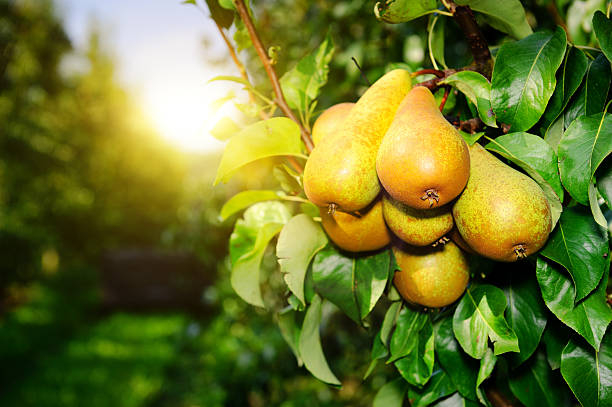
Benefit skin health 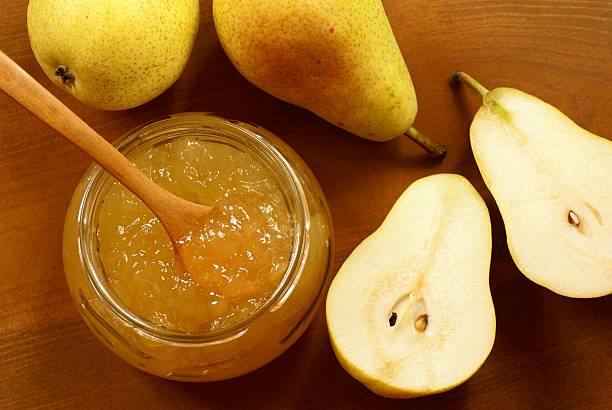
Benefit skin health -
The nutrient-dense fruit provides a lot of nutrients to your hair. Furthermore, Sorbitol or glucitol (natural sugar alcohol) found in pears is believed to nourish and hydrate the hair roots. This nourishes the scalp and keeps the hair in good condition. Pears are the greatest when it comes to decreasing hair dryness. The fruit's hydrating and conditioning characteristics aid in the health of hair cells. The strands grow softer and smoother as a consequence.
Pears, in addition to decreasing hair dryness, also reduce frizziness. This removes unsightly knots and makes the locks more manageable. Pears aid in the restoration of hair's natural shine. Make a natural mask for this purpose by combining pear extract and diluted apple cider vinegar. Then, use it all over your dull, lifeless hair to revive and shine it.
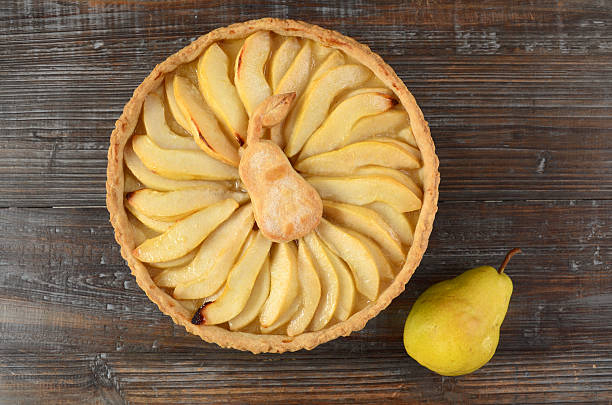
Improve hair health 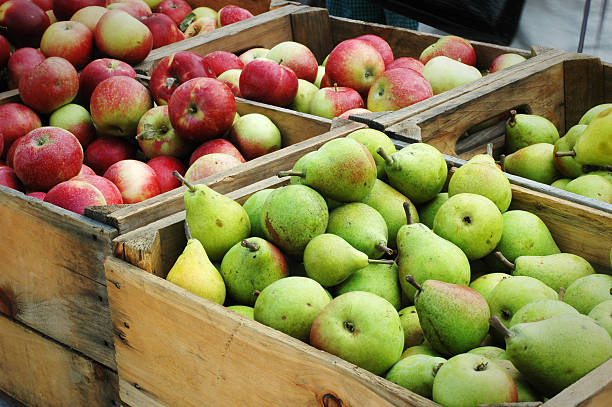
Improve hair health













